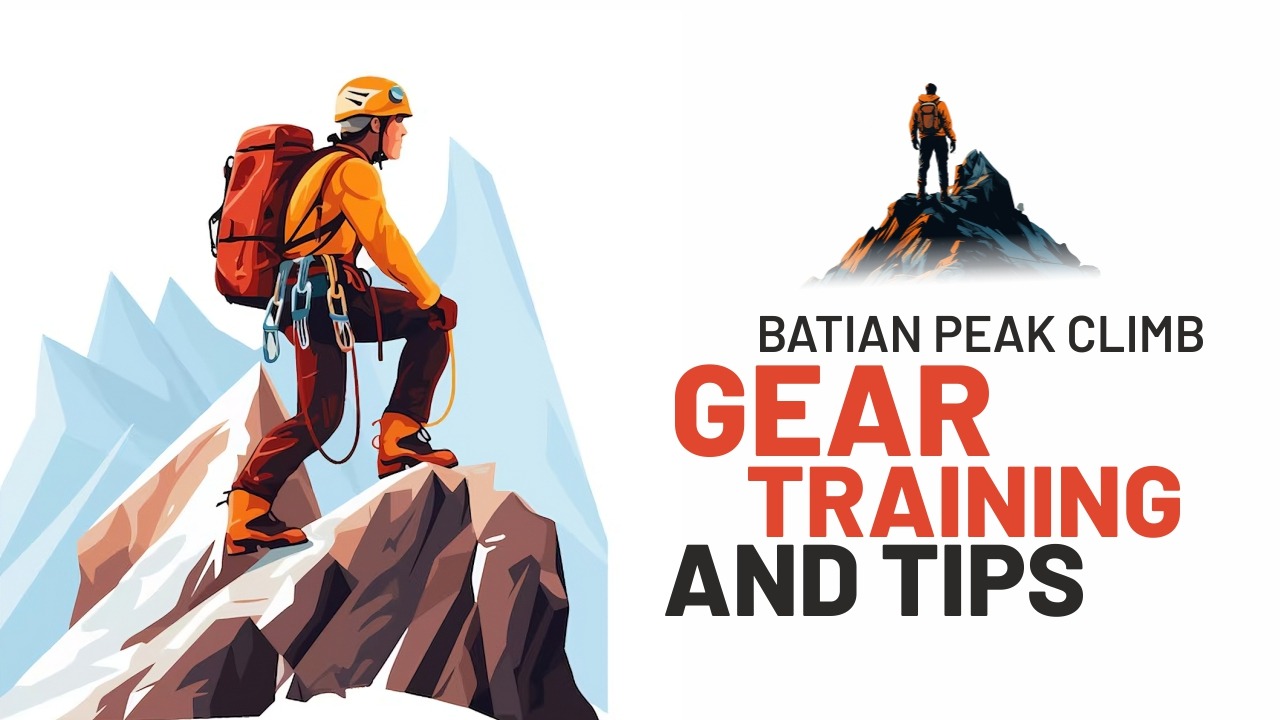
Climbing Batian Peak, the highest point in Mount Kenya, is an incredible adventure. It’s a challenging trek that requires some preparation. If you’re planning to climb Batian Peak, here’s a simple guide to help you get ready.
Gear: What You Need
- Hiking Boots
A good pair of hiking boots is a must. Choose boots that are waterproof and have strong ankle support. Make sure they are broken in before your climb to avoid blisters.
- Clothing
Dress in layers. Start with a moisture-wicking base layer that keeps sweat away from your skin. Add an insulating layer, like a fleece or down jacket, for warmth. Finally, bring a waterproof and windproof outer layer. Weather on Batian Peak can change quickly, so be prepared for rain, wind, and cold temperatures. - Backpack
Your backpack should be comfortable and have enough space for your essentials. Aim for a pack with a capacity of 40-50 liters. It should fit well and not bounce around as you climb. - Sleeping Bag
A high-quality sleeping bag rated for cold temperatures is essential. Temperatures can drop below freezing, especially at higher altitudes. - Trekking Poles
Trekking poles can help with stability and reduce the strain on your knees, especially on steep sections. - Safety Gear
Bring a headlamp with extra batteries, a first-aid kit, and a multi-tool. A helmet is also recommended for protection against falling rocks.
Training: Get Ready Physically
- Build Stamina
Start by increasing your cardiovascular fitness. Go for regular runs, bike rides, or swims. Aim for at least 30 minutes of exercise most days of the week. Hiking on hilly terrain can also be very beneficial. - Strength Training
Focus on building strength in your legs, core, and upper body. Exercises like squats, lunges, and planks can help. Strong legs and core will make climbing and carrying a pack easier. - Practice Hiking
Try to do some long hikes with a loaded backpack. This will help your body get used to the conditions you’ll face on the climb. If possible, practice on similar terrain to what you’ll encounter on Batian Peak. - Acclimatization
Batian Peak is high, so you’ll need to get used to the altitude. Plan to spend a few days at higher elevations before your climb to help your body adjust. This can prevent altitude sickness.
Tips: Make Your Climb Smooth
- Know the Route
Familiarize yourself with the climbing route. Knowing what to expect can help you prepare mentally and avoid surprises. Research the trail and read about others’ experiences. - Stay Hydrated
Drink plenty of water before and during the climb. Staying hydrated helps with acclimatization and keeps your energy levels up. - Eat Well
Bring high-energy snacks and meals. Foods like nuts, energy bars, and dried fruits are great for quick energy. On the climb, eat small amounts frequently to keep your energy up. - Pace Yourself
Climbing Batian Peak is not a race. Take your time and listen to your body. If you feel tired, take breaks. Slow and steady wins the climb. - Be Prepared for Weather
Check the weather forecast before you go. Be ready for any changes and adjust your clothing accordingly. - Follow Safety Protocols
Always follow the advice of your guide and any local regulations. Safety is the most important part of climbing. Make sure you have proper insurance and know the emergency procedures. - Respect the Environment
Leave no trace. Carry all your trash with you and respect wildlife and natural surroundings. Protecting the environment ensures that future climbers can enjoy Batian Peak as much as you do.
Preparing for a Batian Peak climb requires the right gear, physical training, and some practical tips. With careful planning and preparation, you can make your climb a memorable and successful adventure. Stay safe and enjoy the stunning views from one of Kenya’s highest peaks!